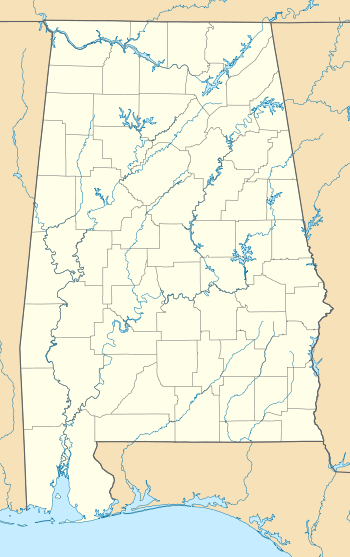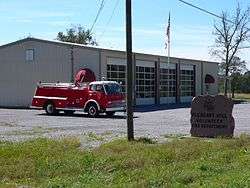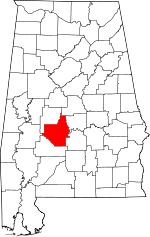Pleasant Hill, Dallas County, Alabama
| Pleasant Hill, Alabama | |
|---|---|
| Unincorporated community | |
|
Pleasant Hill Alabama Volunteer Fire Department | |
 Pleasant Hill Location in Alabama | |
| Coordinates: 32°09′56″N 86°54′43″W / 32.16556°N 86.91194°WCoordinates: 32°09′56″N 86°54′43″W / 32.16556°N 86.91194°W | |
| Country | United States |
| State | Alabama |
| County | Dallas |
| Elevation | 404 ft (123 m) |
| Time zone | Central (CST) (UTC-6) |
| • Summer (DST) | CDT (UTC-5) |
| ZIP code | 36775 |
| Area code(s) | 251 |
| GNIS feature ID | 155207[1] |
Pleasant Hill is an unincorporated community in Dallas County, Alabama.[2]
History
The community began as a trading post called Fort Rascal prior to the Indian removal, it gained a post office in the 1840s and the name was changed to Pleasant Hill.[3] The community was visited by Philip Henry Gosse, an English naturalist, for an eight-month period in 1838 when he taught school for Reuben Saffold, a local planter. His studies and drawings of the flora and fauna of the area and his recollections of slavery were later published in his book Letters from Alabama.[4] Pleasant Hill has one site included on the National Register of Historic Places, the Pleasant Hill Presbyterian Church.[5] It has several sites listed on the Alabama Register of Landmarks and Heritage and one nearby, Belvoir.[6]
Demographics
| Historical population | |||
|---|---|---|---|
| Census | Pop. | %± | |
| 1880 | 193 | — | |
| U.S. Decennial Census[7] | |||
Pleasant Hill was listed on the 1880 U.S. Census as having a population of 193.
Notable people
References
- ↑ "Pleasant Hill". Geographic Names Information System. United States Geological Survey.
- ↑ "Pleasant Hill, Alabama". "AL HomeTownLocator". Retrieved 2008-11-05.
- ↑ Sims, Michael. "Pleasant Hill Presbyterian Church: An endangered historic property in Pleasant Hill, Alabama". Archived from the original on 2009-10-26. Retrieved 2008-11-05.
- ↑ Gosse, Philip Henry (1993) [1859]. Letters from Alabama, (U.S.) chiefly relating to natural history (Annotated ed.). Tuscaloosa: University of Alabama Press. pp. 7–21. ISBN 0-585-32308-9.
- ↑ Staff (2010-07-09). "National Register Information System". National Register of Historic Places. National Park Service.
- ↑ "Properties on the Alabama Register of Landmarks & Heritage" (PDF). Alabama Historical Commission. www.preserveala.org. 4 June 2009. Retrieved 28 November 2010.
- ↑ "U.S. Decennial Census". Census.gov. Retrieved June 6, 2013.
| |||||||||||||||||||||||||||||

